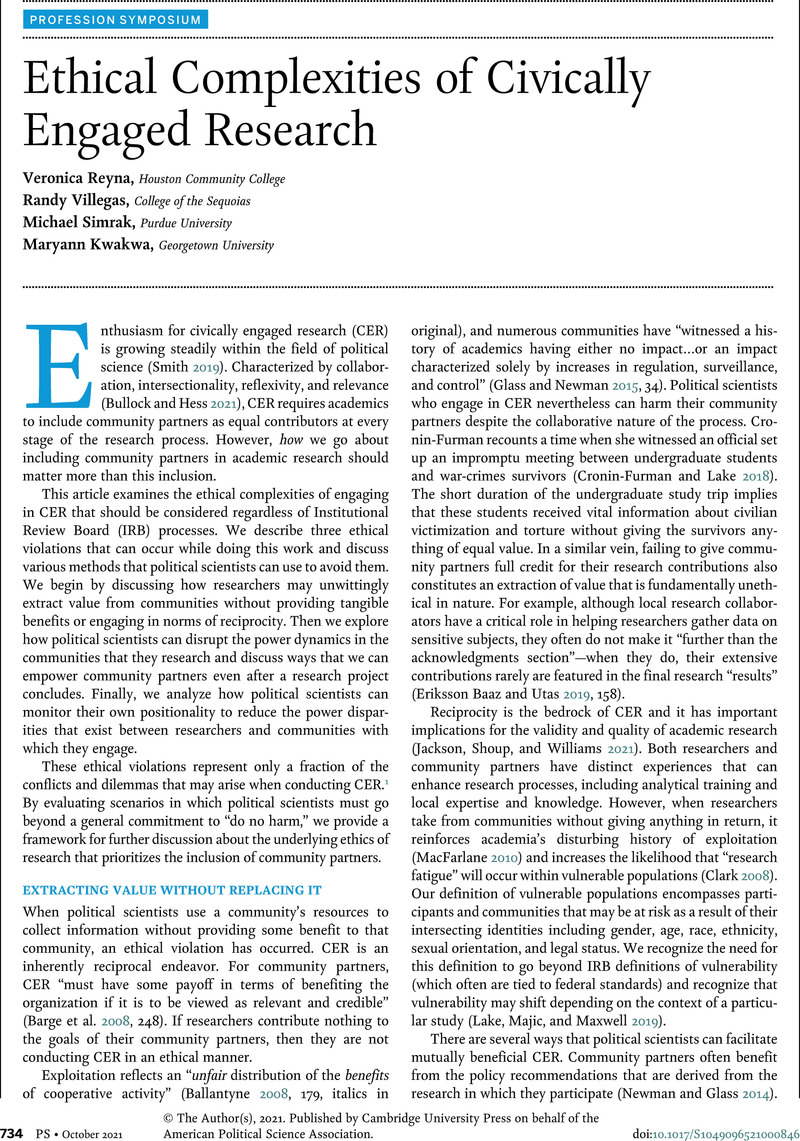Crossref Citations
This article has been cited by the following publications. This list is generated based on data provided by Crossref.
Reyna, Veronica Lynn
Chaffin, LaTasha
and
Burbridge, Chris
2024.
Best practices: CER with vulnerable populations in contentious political environments.
Politics, Groups, and Identities,
p.
1.
Mitra, Ankushi
Kline, Curtis
and
Bautista-Chavez, Angie M.
2024.
Civically engaged research in political science: a methodological guide.
Politics, Groups, and Identities,
p.
1.
Chan, Stephanie
Reichert, Frank
and
Krewson, Rosa Castillo
2024.
Vulnerability as identity facet: reconceptualizing vulnerability to conduct civically engaged research.
Politics, Groups, and Identities,
p.
1.
Bamzai-Dodson, Aparna
Cravens, Amanda E.
and
McPherson, Renee A.
2024.
Critical Stakeholder Engagement: The Road to Actionable Science Is Paved with Scientists’ Good Intentions.
Annals of the American Association of Geographers,
Vol. 114,
Issue. 1,
p.
1.
Smith, Rogers M.
2024.
Oxford Handbook of Engaged Methodological Pluralism in Political Science.
Reichert, Frank
Rice, Laurie L.
and
Do, Nhat-Dang
2025.
Methodological pluralism in civically engaged research.
Politics, Groups, and Identities,
p.
1.



